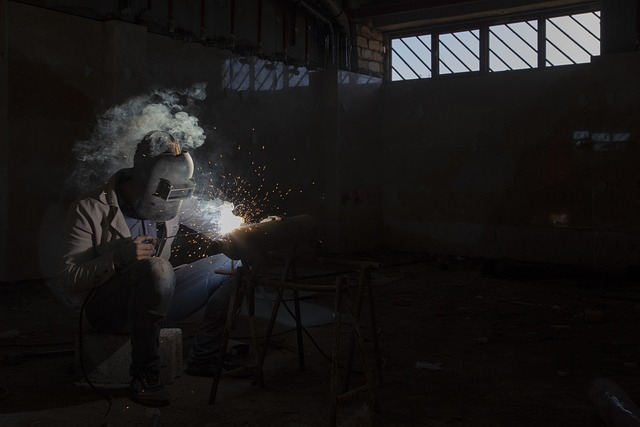Accurate translation of UK play scripts and screenplays demands a deep understanding of dramatic structure, cultural nuance, and linguistic subtleties. Professional services employ translators with theater backgrounds to capture tone, voice, and comedic timing unique to British English. By balancing accuracy and natural flow, these experts preserve the original work's emotional intent and dramatic tension for global audiences. Quality Assurance checks ensure the translated scripts maintain their artistic essence, cultural resonance, and symbolic weight, making them suitable for international performance and screen adaptation.
In the realm of global storytelling, preserving dramatic integrity in translations from UK play scripts and screenplays is an art. This comprehensive guide explores key aspects, from understanding complex dramatic structures to capturing cultural nuances and tone. We delve into strategies for adapting dialogue, visualizing performance space through stage directions, and ensuring accuracy through quality assurance checks. By mastering these elements, translation services can bring the vibrant tapestry of UK storytelling to life in diverse languages, fostering global appreciation.
- Understanding Dramatic Structure in UK Scripts
- Culture and Context: Translating Nuances
- Capturing Tone and Voice Across Languages
- Preserving Dialogue: Word-for-Word vs. Natural Flow
- Adapting for Target Audience: Language & Style
- Symbolism, Metaphor: Deep Cultural Significance
- Stage Directions: Visualize Performance Space
- Quality Assurance Checks: Ensuring Accuracy
Understanding Dramatic Structure in UK Scripts

Understanding dramatic structure is paramount when translating UK play scripts and screenplays, as it forms the very backbone of a compelling narrative. These texts are meticulously crafted to evoke emotion, drive plot forward, and create memorable characters. Translators must grasp how scenes unfold, dialogue flows, and action sequences build tension or alleviate pressure within this structured framework.
Each scene in a UK play script or screenplay serves a specific purpose, whether advancing the storyline, revealing character motivations, or providing comic relief. Capturing these nuances requires translators to not only master the language but also possess a keen eye for storytelling. By preserving the dramatic structure, translation services ensure that the final product resonates with audiences, maintaining the essence of the original work.
Culture and Context: Translating Nuances

When translating UK play scripts and screenplays, preserving dramatic integrity requires a deep understanding of cultural nuances. Each language carries its own unique idioms, expressions, and narrative structures that can significantly alter the impact of the original work. For instance, what works as a powerful monologue in one language might not translate well due to differences in sentence structure or cultural references.
Professional translation services specialize in navigating these complexities. They employ translators with theater and film backgrounds, who can capture the essence of dramatic pieces while adapting them to the target culture. By respecting context, tone, and intent, these services ensure that the translated script maintains its artistic integrity, making it a seamless experience for audiences around the world.
Capturing Tone and Voice Across Languages

When translating UK play scripts and screenplays into other languages, maintaining dramatic integrity is paramount. Tone and voice are essential elements that drive the narrative forward and evoke emotions in the original work. A skilled translator must not only capture the literal meaning of each line but also understand the nuances of tone and voice unique to British English. This involves a deep sensitivity to cultural references, idiomatic expressions, and subtle comedic timing, ensuring these aspects translate authentically into the target language.
Effective translation services for UK play scripts and screenplays often employ linguists who are native speakers or have extensive experience in both the source and target languages. They understand that every language has its own musicality and rhythm, and adapting these while preserving the dramatic flow is a delicate task. By carefully choosing words, phrases, and sentence structures, translators can replicate the original work’s tone and voice, allowing the translated text to resonate with audiences in a similarly powerful way.
Preserving Dialogue: Word-for-Word vs. Natural Flow

When translating UK play scripts or screenplays, preserving dramatic integrity requires a delicate balance between word-for-word accuracy and capturing the natural flow of dialogue. A literal translation may lose the rhythm and nuance that make performances engaging. For instance, puns or idioms unique to a language often don’t translate well without compromising the script’s impact.
Therefore, professional translators skilled in UK Play Scripts and Screenplays Translation Services opt for a more dynamic approach. They aim to convey not just the meaning but also the emotional intent behind each line. This involves rephrasing where necessary to maintain the dramatic tension, ensuring that the dialogue flows naturally in the target language while staying true to the original author’s vision.
Adapting for Target Audience: Language & Style

When translating a play script or screenplay, adapting for the target audience is crucial. This involves more than just converting words from one language to another; it’s about ensuring the translation resonates with viewers in their cultural and linguistic context. For UK-based play scripts and screenplays, translation services should aim to capture the dramatic integrity of the original work while adapting the language and style to suit British audiences.
This might involve simplifying complex sentences for easier comprehension, adopting more informal or colloquial language where appropriate, and infusing a touch of local flavour that aligns with UK cultural norms. For example, translating regional dialects accurately can enhance authenticity, but it’s essential not to overload the translation with overly specialized vocabulary that might confuse viewers. The goal is to strike a balance between fidelity to the original text and accessibility for the intended audience.
Symbolism, Metaphor: Deep Cultural Significance

In UK play scripts and screenplays translation services, preserving symbolism and metaphor is paramount. Symbols and metaphors often carry deep cultural significance, encoding complex ideas and emotions that are integral to the original work’s dramatic integrity. For instance, a natural element like water might symbolize purification or cleansing in one culture but transformation or chaos in another. Similarly, a metaphorical animal, such as a lion representing courage, could evoke different associations across diverse audiences.
Translators must understand these cultural nuances and literary devices to accurately convey the intended meaning. They need to go beyond literal translations, ensuring that the symbolic weight and emotional impact of the original are not lost in translation. This requires research, sensitivity to cultural contexts, and a deep appreciation for metaphorical language, thereby preserving the play’s or screenplay’s artistic essence for global audiences.
Stage Directions: Visualize Performance Space

When translating a play script or screenplay, preserving dramatic integrity means not only rendering dialogue accurately but also considering stage directions and visual elements. These include setting descriptions, character movements, and staging cues—all crucial for an audience’s understanding of the performance space. For instance, UK Play Scripts and Screenplays Translation Services should pay close attention to how a scene’s physicality contributes to its meaning. A simple “walk across the stage” might imply conflict or introspection depending on where characters enter or exit, and what obstacles they encounter along the way.
Visualizing the performance space helps translators make informed choices about wording that not only conveys action but also echoes the play’s emotional resonance. This includes considering props, lighting, and set design, which can dramatically alter an audience’s interpretation of a scene. By immersing themselves in these visual aspects, translators can ensure their work maintains the play’s dramatic integrity, making it a vivid experience for readers and future performers alike.
Quality Assurance Checks: Ensuring Accuracy

High-quality UK play scripts and screenplays translation services employ rigorous Quality Assurance (QA) checks to ensure accuracy. These checks are vital, as they catch any errors or discrepancies that might have slipped through during the translation process. A thorough QA involves multiple stages of review, including linguistic and cultural expertise, to confirm not just the literal meaning but also the dramatic integrity of the original work.
By implementing stringent QA protocols, professional translation services for play scripts and screenplays in the UK can guarantee that the translated text retains the essence, tone, and intent of the source material. This meticulous approach is crucial in preserving the artistic vision of the playwright while making the script accessible to a global audience, thereby enhancing its potential for success on international stages or screens.
In preserving the dramatic integrity of UK play scripts and screenplays for translation services, a nuanced approach is essential. By understanding the cultural context, capturing tonal variations, and adapting for diverse audiences, translators can ensure that the essence of the original work remains intact. Through meticulous attention to dialogue, symbolism, and stage directions, along with rigorous quality assurance checks, these considerations enable accurate adaptations that honor both the text and its intended performance space.
